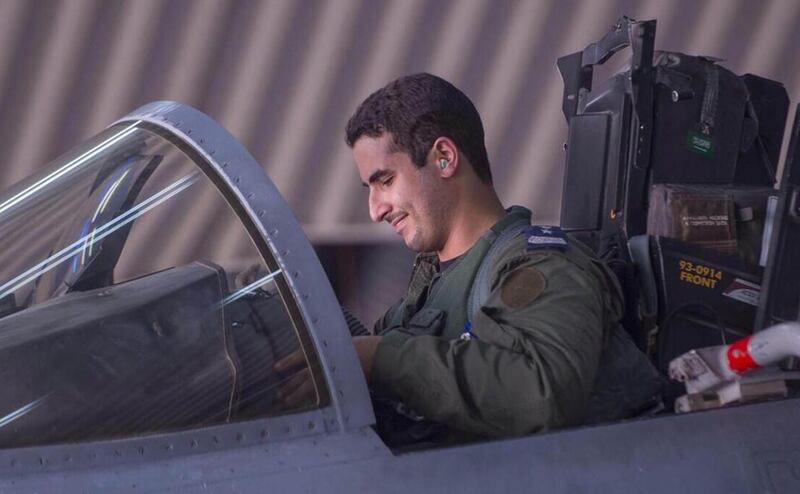Saudi Arabia’s King Salman has implemented major changes to senior government positions, including naming his young son as ambassador to the US and restoring benefits to civil servants that had been cut as part of austerity measures last year.
Prince Khaled Bin Salman Bin Abdelaziz — believed to be only in his 20s — will replace Prince Abdullah Bin Faisal Bin Turki who has served as US envoy for over a year, according to the decree on Saturday.
The replacement of the envoy to the US is yet another sign of the increasingly positive relations between Riyadh and Donald Trump’s new administration. The move is also an indication of the increasing sway of Prince Mohammed Bin Salman, the Saudi deputy crown prince and defence minister, in the relationship with Washington, observers said.
The reshuffle is intended “to bring new blood and dynamism to certain posts that are very critical, including the US ambassador post — and that post is very important — by somebody who is very savvy technically, very competent in military matters and is also the brother of the deputy crown prince”, said John Sfakianakis, director of economic research at the Gulf Research Centre in Riyadh.
Prince Khaled was an accomplished F-15 fighter pilot who has flown missions against ISIL and in Yemen, and was trained in part in the US.
The Saudi-owned Al Arabiya news website says he studied briefly at Harvard University and Georgetown University, and trained at Nellis Air Force Base in Nevada, but a back injury forced him to stop flying.
He has been an adviser at the Saudi embassy in Washington since late last year.
“He is being seen as a modern-day version of Bandar Bin Sultan, who also trained as a fighter pilot before dominating the US-Saudi relationship for more than two decades as ambassador in Washington,” Washington Institute fellow Simon Henderson wrote earlier this year. Prince Bandar was the influential former diplomat who had very close relations with the White House under George W Bush, before bilateral relations frayed during Barack Obama’s tenure.
Prince Khaled, the full brother of the deputy crown prince, is another example of the appointment of princes and other Saudis from a younger generation to powerful positions, which began with King Salman's first reshuffle more than two years ago.
Another of the king’s sons, Prince Abdulaziz, was named minister of state for energy affairs on Saturday.
The Saudi army chief, Lt Gen Eid Al Shalwi, who led operations in Yemen, was replaced by Fahad Bin Turki, while Maj Gen Ahmed Assiri — spokesperson for the Saudi-led coalition in Yemen — was promoted to deputy head of intelligence.
Since the September 11, 2001 attacks, Saudi crown prince Mohammed Bin Nayef, has been one of the key figures in the Saudi-US relationship due to his close cooperation with the CIA in fighting Al Qaeda and other extremist groups.
But as deputy crown prince Mohammed Bin Salman has gained greater prominence and power as defence minister and has also become the prime force driving Riyadh’s sweeping plans for economic transformation, he also appears to be taking the lead in relations with the US — the kingdom’s most important international partner.
“Khalid bin Salman and Ahmed Assiri appointments can be said to have strengthened MBS grip on US relations and military/intelligence issues”, Kristian Ulrichsen, a Gulf expert at Rice University, posted on Twitter.
The king also reinstated benefits for Saudi civil servants and military personnel that were cut last year, and declared bonuses of two months additional salary for Saudi troops serving in Yemen.
Last September, due to the drop in oil prices and a major budgetary squeeze, King Salman cut ministers’ salaries by 20 per cent and ended a number of benefits for public sector employees.
Two-thirds of Saudi citizens were reportedly affected by the cuts, further denting confidence in the economy.
But an official statement said the deputy crown prince recommended reversing the measures after a better than anticipated economic position over the first quarter of this year, due to what the government said was the successful implementation of “a number of fiscal adjustments” since the fall in oil prices in 2014.
The moves are also intended as a stimulus for the Saudi economy at a crucial time, Mr Sfakianakis said.
“I see it as a move that provides a breather for the economy. The measure will add liquidity to the economy and that will fuel additional consumption that is very much needed, and also it will contribute to greater confidence,” he said.
tkhan@thenational.ae
*With additional reporting from Associated Press and Bloomberg





